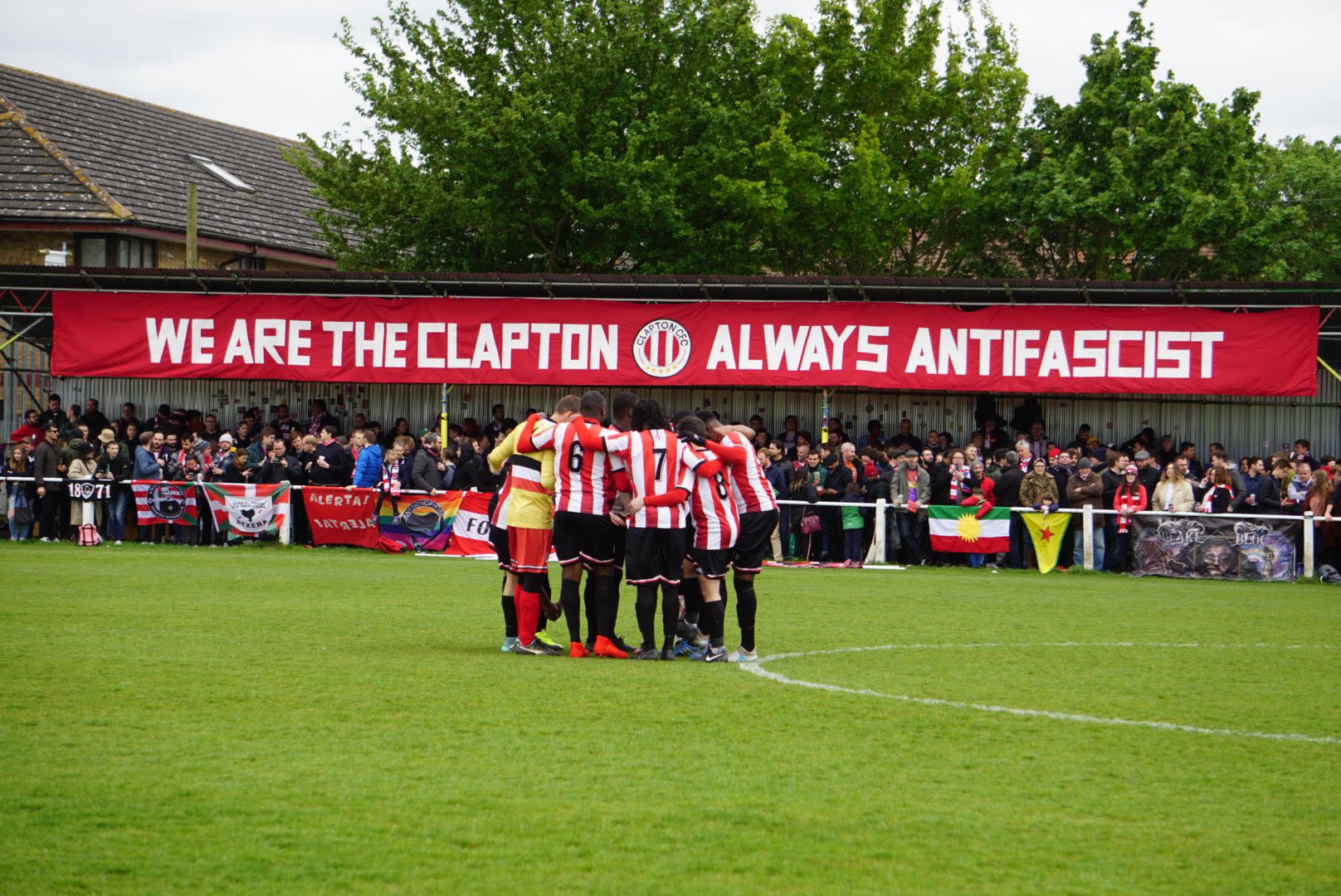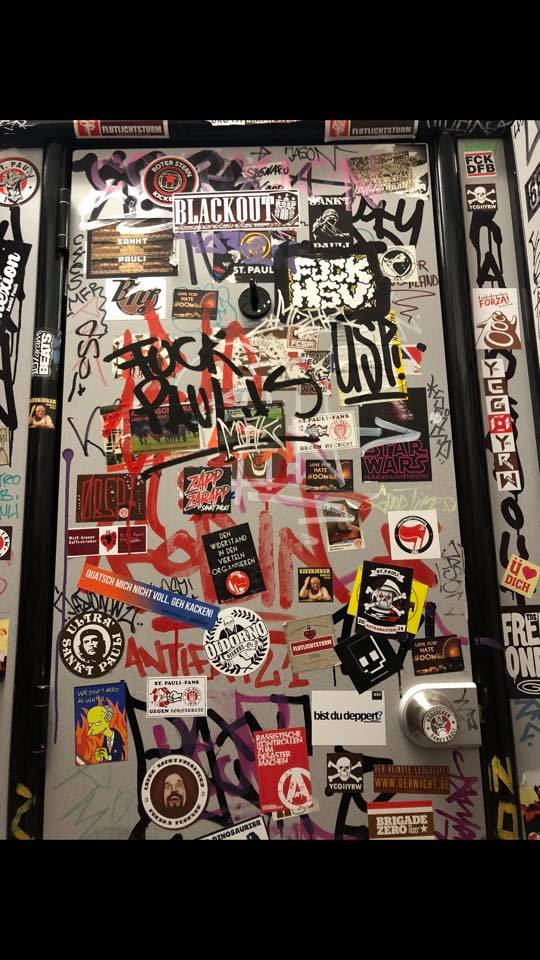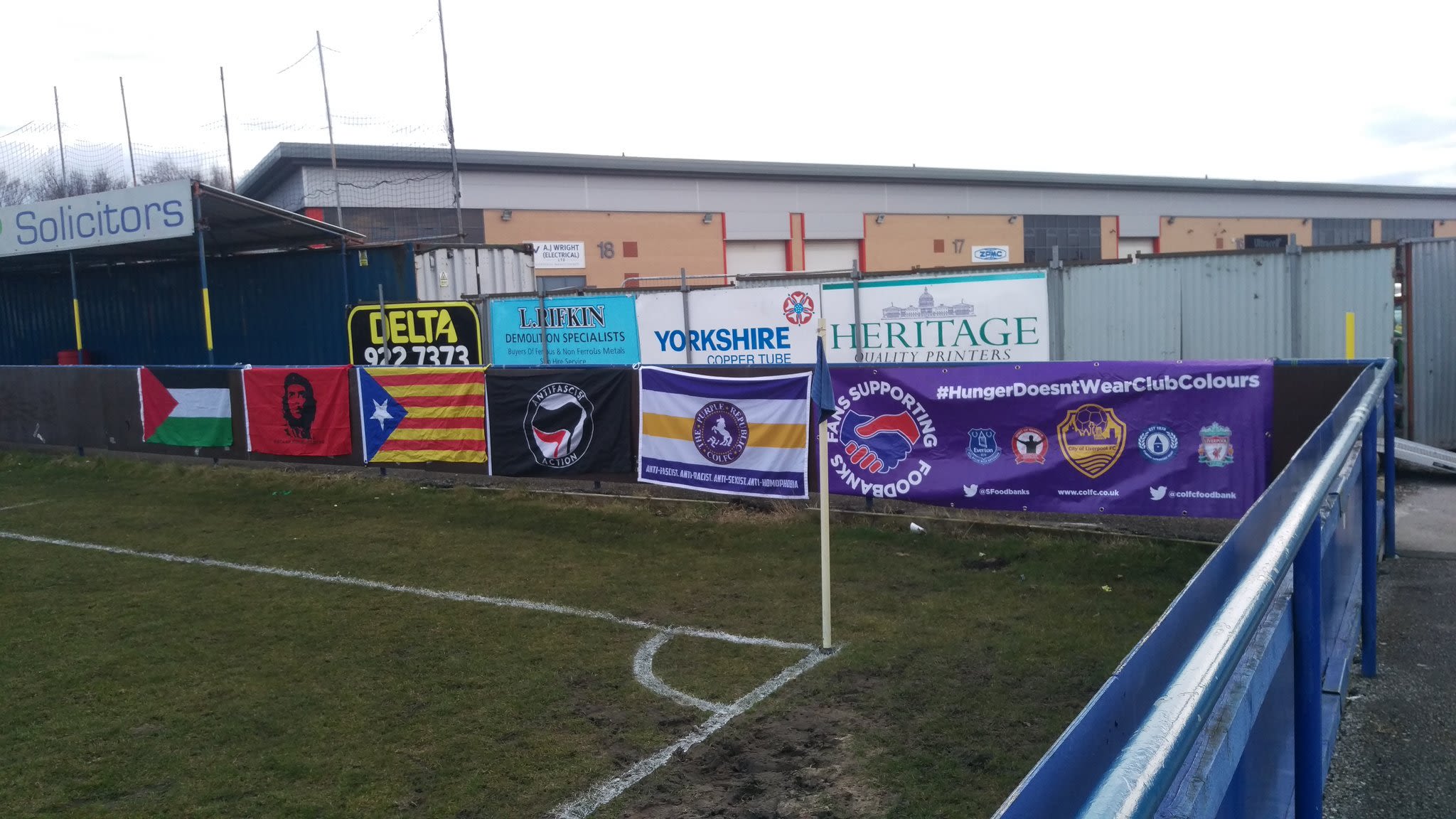Supporting a Team and a Movement
Socialist Fan Groups

In the previous edition of this five part series, we looked at those who are often on the edge of fangroups and fan culture and how they are looking to improve diversity within sport as a whole.
Now, in the next piece of our Power Play series on the social and cultural impact of sport, we look at the people looking to assist those less privileged through the games they love.
In the political climate we currently find ourselves in, division is high on the list of societal issues. Left leaning political parties are looking to promote inclusivity and equality but there is also work being done at a grassroots level.
Away from the limelight of news networks, there are these movements. Groups of people on terraces all over the world who are looking to promote these values. This is the world of the left wing fangroup.
“Sport itself is inherently political” says Ryan Wheeler – a member of the Southampton St Pauli fangroup. One of many groups who follow German second division football team St Pauli.
The club were formed in 1910 but a new identity reinvigorated the club in the 1980s when the people of the traditionally liberal, punk and anti capitalist district of the city began to attend the club’s matches.
“I was drawn into the club by the politics” adds Wheeler. “I had a friend who I'd seen wearing a St Pauli totenkopf t shirt a few times and I'd seen the football team from playing Football Manager so I asked him what it was all about.”
Totenkopf is German for the skull and crossbones – a symbol which is synonymous with the club and the punk aspect of its support.
“The more I read [about the club] the more I was drawn in” he adds.

St Pauli stickers at their stadium, Millerntor, depicting left wing imagery. Image - Jack Tomlin
St Pauli stickers at their stadium, Millerntor, depicting left wing imagery. Image - Jack Tomlin
St Pauli Southampton are a newer group but are already looking to follow the philosophy of the fans in Hamburg, where the club is based.
“We recently had a raffle to raise money for a local refugee charity and raised over £200. In the close season we are going to try and organise some kind of football-for-all event” said Wheeler.
One of the reasons he was drawn to St Pauli was the lack of such clubs at the top levels of the English game: “My home team, Southampton, had got into the Premier League and was becoming more and more corporate.”
Away from the top levels in England, there are two clubs in London who are drawing fans to the terraces. Clapton Community FC are the newest of the two, having formed in the summer of 2018 as a fan run movement after their active fan support clashed with the ownership of Clapton FC, who they used to follow.
“I was club captain when we won the last trophy [at Clapton FC]” said Geoff Ocran. “When they decided to create their own club they approached me to see if I could be player manager.” These are roles he still holds.
“Once you start following the fans and seeing the message that they used to bring towards the game, you start to realise their beliefs. That’s really why it grew” he adds.
The new club play in division one of the Middlesex County League in step seven of non league, and the fans are now supporting this club in unprecedented numbers.
“They’re not just football fans” adds Ocran, who has been involved with both clubs for long enough to see the fanbase grow from nothing.
The club’s away shirt has shown to be popular in Spain as it depicts the flag of the Spanish Republic which helped to fight against the fascist dictatorship of General Franco in 20th century Spain. Emblazoned on the back of the shirt is ‘No Pasaran’, a rallying cry from the soldiers fighting against Franco’s forces.
“I think it’s very important to reach out to club who have the same philosophy” Ocran explains, talking about the club’s trip to Spain to play a friendly against CE Jupiter of Catalonia. The game finished with chants of “no parasan” among an atmospheric cloud of smoke from fans’ pyrotechnics. The club were invited to celebrate the spirit of the Spanish republic in fighting fascism in an annual festival.
Dulwich Hamlet of the National League South aren’t as vocal in their political views as those of Clapton, but their views on inclusivity have encouraged an impressive fanbase to follow them to the south of the River Thames.
“In the early days of the growth of fans at Dulwich when the crowds went from around 300 a week to just under 1,000 in the first couple of years, the majority of fans who were coming were politically active and very outspoken” explains Ben Sibley of the Forward The Hamlet podcast.
“We were being very public in our views and they were doing some very similar things. Then as our crowds grew it became diluted and the crowds became less about being socially active and leftist agenda and it became Guardian readers in their 40s bringing their kids” adds Sibley.
“Nothing stays punk forever” he admits.
Sibley became a fan of Dulwich because of their political beliefs and was part of the initial growth at the club. “I was becoming increasingly, I know it’s a cliché, but disillusioned with top level football.
“A small group of younger fans had started going. It was like a motley crew of people, all walks of life and different backgrounds” he adds.
“That first group, some of them were left wing housing activists, some of them were politically active or left leaning. Some of them were second generation immigrants and some were, proper, I suppose, what you’d call proper East London working class” he says.
But it isn’t just in the capital where there is this movement. City of Liverpool FC were founded in 2015 as a club with left wing values.
Peter Furmedge was one of five people who started the club and describe it as “a footballing representation of the city’s diverse social and cultural identity.” He also spends time as an honorary lecturer on social enterprise at the University of Liverpool.
“As such, we have a role to play in projecting the city's diversity and our heritage as something of a rebel city. The club works within the community to achieve this, in particular through our work with refugees, our junior football partnerships, the COLFC Community Partisan events, and the COLFC Foodbank” he explains.

City of Liverpool FC flags at a game. They depict Che Guevara among other symbols of the political left. Image - @COLFCRepublic
City of Liverpool FC flags at a game. They depict Che Guevara among other symbols of the political left. Image - @COLFCRepublic
The club was formed with politics in mind from the start, much like Clapton CFC when it broke away from Clapton FC in 2018. “The club is left leaning from its core. The founders were motivated by socialist principles of common democratic ownership” explains Furmedge.
However, as much as there are left wing, socialist groups and clubs, there are still those resisting this wave. In the final part of this series we will be looking at those to the right of the political spectrum and their links with sport and society.

